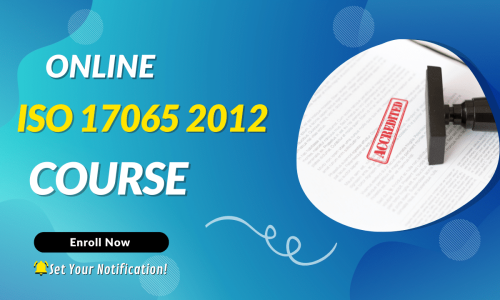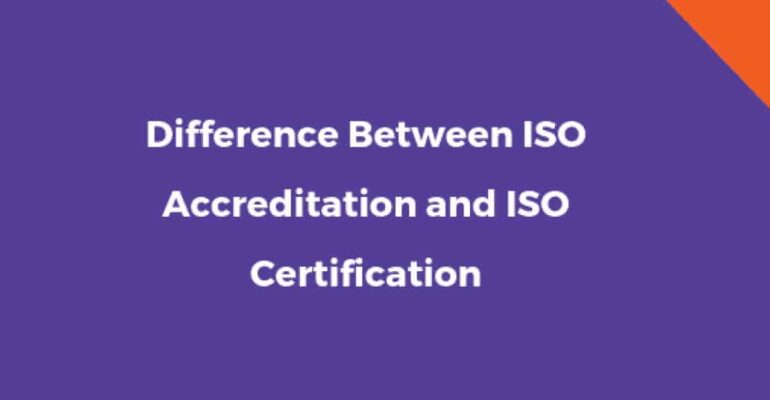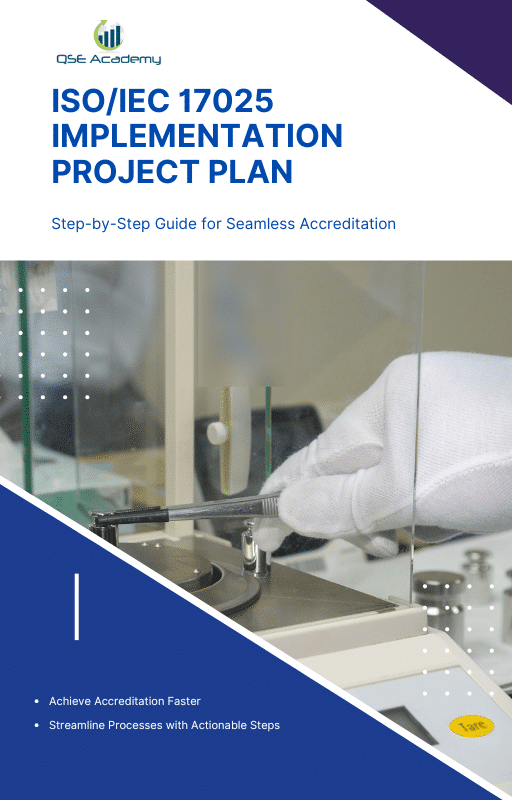The Difference Between ISO Accreditation and ISO Certification
Last Updated on October 13, 2025 by Hafsa J.
The Difference Between ISO Accreditation and ISO Certification
Hey there! Let’s talk about something that might sound a little confusing at first—ISO Accreditation and ISO Certification. You’ve probably heard these terms thrown around, especially when businesses talk about quality standards or meeting global benchmarks. And while they might seem interchangeable, they’re actually two very different concepts.
Think of it this way: both ISO Accreditation and ISO Certification are like stamps of approval, but they apply to different parts of the process and mean different things. Whether you’re a business owner trying to figure out what your organization needs or just curious about how these work, it’s important to understand the distinction. Why? Because mixing them up could lead to some costly mistakes or missed opportunities.
In this article, we’re going to break it all down—what ISO Accreditation and ISO Certification are, how they work, and most importantly, how they differ. By the end, you’ll have a clear picture of which one matters most for your business or situation. Ready? Let’s dive in!
What is ISO Accreditation?
Alright, let’s tackle ISO Accreditation first. Imagine you’re trying to hire someone to grade a test—like a teacher or an examiner. You’d want to make sure they’re qualified to assess the work fairly and accurately, right? That’s essentially what ISO Accreditation is all about. It’s a way to verify that an organization, usually one that provides testing, inspection, or certification services, is competent to do its job according to internationally recognized standards.
Here’s how it works: accreditation is granted by an official accreditation body (think of it like a quality referee). This body checks if the organization has the skills, systems, and expertise to evaluate others against specific standards. For example, an organization that certifies companies as ISO 9001 compliant (a popular standard for quality management systems) might need to be accredited to prove they’re reliable and trustworthy.
So why does ISO Accreditation matter? Well, it adds an extra layer of credibility. When an organization is accredited, it’s like a gold seal of approval, showing that they’ve been thoroughly vetted. For industries like healthcare, construction, or food safety, where trust and precision are everything, accreditation ensures that only qualified players are calling the shots.
Here’s the kicker: not every organization that offers certifications is accredited. And that’s where businesses need to be cautious. Without ISO Accreditation, there’s no guarantee that a certification body is following the right protocols or adhering to the standards you expect. So, if you’re shopping around for a certification provider, always check if they’re accredited—it’s your way of knowing you’re in good hands.
In short, ISO Accreditation isn’t for everyone, but for the organizations that need it, it’s a must-have. It ensures they’re up to the task of evaluating and certifying others. Pretty neat, right? Now that we’ve got accreditation covered, let’s dive into the other side of the coin—ISO Certification!
What is ISO Certification?
Now, let’s talk about ISO Certification, because this is the part most people are familiar with. Think of it as a badge of honor for organizations. When a company is ISO certified, it means they’ve met specific international standards for things like quality, safety, efficiency, or even sustainability. It’s like getting a gold star for doing things the right way!
Here’s how it works: an organization decides they want to follow a particular ISO standard—let’s say ISO 9001, which focuses on quality management. To get certified, they need to prove that their processes and systems meet the requirements of that standard. But they can’t just give themselves a certification (wouldn’t that be nice?). They need to go through an independent certification body that checks their compliance.
This is where ISO Certification really shines. It’s a way for businesses to show their customers, partners, and even competitors that they’re serious about doing things the right way. Whether it’s ensuring products are safe, services are consistent, or environmental impact is minimized, ISO Certification gives organizations a competitive edge.
Now, here’s an important point: not all certification bodies are created equal. Some of them might not be accredited, which means their certifications might not carry as much weight. This is why accreditation and certification are closely connected. If a certification body has ISO Accreditation, you know they’ve been thoroughly vetted to ensure they’re competent. It’s like double-checking the checker!
So, why should businesses care about ISO Certification? For starters, it builds trust. Imagine you’re shopping for a product and see one company proudly displaying their ISO certification. Wouldn’t you feel more confident choosing them, knowing they’ve met rigorous international standards? Certification can open doors to new markets, improve customer satisfaction, and even streamline internal processes. In other words, it’s a win-win.
To sum it up, ISO Certification is all about proving that an organization is walking the talk when it comes to following global standards. It’s a signal of quality, reliability, and professionalism—and who wouldn’t want that? Now that you’ve got the gist of both ISO Accreditation and ISO Certification, let’s explore how they’re different and why it matters. Stay with me!
Key Differences Between ISO Accreditation and ISO Certification
Now that we’ve covered what ISO Accreditation and ISO Certification are, let’s clear up the confusion between the two. Think of them as different parts of the same quality system, but they’re not interchangeable. They serve distinct purposes, and knowing the difference can save you a lot of headaches (and maybe even some money!).
1. Who They Apply To
This is one of the biggest differences. ISO Accreditation is all about validating organizations that assess others—like certification bodies, testing labs, or inspection agencies. For example, if a company certifies businesses as ISO 9001 compliant, they might need to be accredited to prove they’re qualified to do so.
On the flip side, ISO Certification is for businesses that want to show they meet specific standards, like ensuring quality, safety, or efficiency. If you’re a manufacturer, a logistics provider, or even a hospital, you might pursue ISO certification to demonstrate that your processes meet internationally recognized standards.
2. Focus and Purpose
Let’s break it down even further. ISO Accreditation focuses on competence. It’s like saying, “Hey, this organization is qualified to check and certify others.” It’s all about the people doing the evaluations and ensuring they’re up to par.
ISO Certification, however, focuses on compliance. It’s about proving that a specific organization meets the requirements of a certain ISO standard. For example, if your business gets ISO 14001 certified, it means you’re following the best practices for environmental management.
3. The Approval Process
The process for achieving ISO Accreditation and ISO Certification is also quite different. For accreditation, the organization needs to be evaluated by an official accreditation body—these are usually government-endorsed organizations that ensure evaluators meet global standards.
For certification, the business works with a certification body. This certification body will assess whether the business complies with the chosen ISO standard. If everything checks out, they issue the certification.
And here’s the catch: the certification body that evaluates you might also need accreditation to prove they’re qualified to do the job. See how the two connect?
4. Level of Credibility
Both ISO Accreditation and ISO Certification add credibility, but in different ways. Accreditation ensures that the evaluators themselves are trustworthy, while certification builds trust in a business’s processes or services. When combined, they create a strong chain of quality assurance.
Why This Difference Matters
Understanding the difference between ISO Accreditation and ISO Certification is crucial for businesses. Imagine hiring a certification body that isn’t accredited—it might look good on paper, but without accreditation, their certification might not hold up in international markets. On the other hand, pursuing the wrong path (like accreditation when you actually need certification) can waste valuable time and resources.
In short, accreditation is about making sure the certifiers are qualified, while certification is about proving that your business meets the standard. Both are vital in their own ways, but knowing which one applies to your needs is the key to success. Now that you’ve got a solid understanding of their differences, let’s explore why this distinction is so important for businesses like yours!
Why the Difference Between ISO Accreditation and ISO Certification Matters
You might be wondering, “Why does it really matter if I understand the difference between ISO Accreditation and ISO Certification?” Well, let me tell you—knowing this distinction isn’t just about technical details; it can have real-world consequences for your business, your reputation, and even your bottom line. Let’s break it down.
1. Choosing the Right Service
Picture this: you’re a business owner looking to prove your company’s commitment to quality standards. You reach out to a certification body, only to find out later they aren’t accredited. Sure, they might still issue you a certification, but without ISO Accreditation, that certificate might not be recognized in your industry—or worse, in international markets.
By understanding that ISO Accreditation ensures the credibility of certification bodies, you can confidently choose a provider that’s been properly vetted. This gives you peace of mind and ensures your certification actually carries weight where it matters.
2. Avoiding Costly Mistakes
Imagine investing time, money, and resources into achieving a certification, only to find out later it doesn’t meet the standards required by your clients or regulatory bodies. Yikes! This happens more often than you’d think when businesses confuse ISO Accreditation and ISO Certification.
Knowing that ISO Accreditation validates the certifiers, while ISO Certification proves your business meets a specific standard, helps you avoid these expensive pitfalls. It’s like double-checking the credentials of a tutor before trusting them to teach you.
3. Boosting Your Credibility
When your business holds an ISO certificate from an accredited certification body, it’s like saying, “We don’t just meet the standard—we’ve been evaluated by experts who are also held to a global standard.” This layer of trust can make a big difference when you’re competing for contracts, trying to expand into new markets, or reassuring your customers.
Accreditation ensures that the certification process itself is reliable, while the certification tells the world that your business is operating at a high level. Together, ISO Accreditation and ISO Certification create a powerful combination that enhances your organization’s reputation.
4. Understanding Industry Expectations
In some industries, especially those with strict regulations like healthcare, aerospace, or food safety, the difference between ISO Accreditation and ISO Certification can be critical. Clients or regulatory agencies might require not only certification but proof that it was issued by an accredited body.
If you don’t understand this distinction, you could miss out on opportunities or fail to meet mandatory compliance requirements. On the other hand, knowing the difference ensures you’re always one step ahead and ready to meet industry demands.
Making the Right Choice
So, how do you figure out what your business needs? Start by asking yourself these questions:
- Does my organization need to prove compliance with a specific ISO standard? (If yes, you need ISO Certification.)
- Am I working with a certification body? Are they accredited by a recognized accreditation body? (If not, their credibility might be questionable.)
- Are my clients or regulators expecting certifications only from accredited providers?
By answering these questions, you can decide whether ISO Accreditation and ISO Certification apply to your situation and make informed decisions about which path to follow.
In a nutshell, understanding the difference between ISO Accreditation and ISO Certification can save you time, money, and unnecessary stress. It ensures you get the right services from the right providers and builds a strong foundation for trust, credibility, and growth. Now, let’s dive into how to figure out which one you need and how to make the most of these processes!
Choosing the Right Path: ISO Accreditation vs. ISO Certification
Alright, now that we’ve unpacked the difference between ISO Accreditation and ISO Certification, let’s figure out which one is the right fit for your business. The good news? It’s not as complicated as it sounds. Think of this as choosing the right tool for the job—once you know what you need, it’s much easier to make the right choice.
1. Do You Provide Certification, Testing, or Inspection Services?
If your organization certifies other businesses, performs laboratory testing, or conducts inspections, then ISO Accreditation is probably what you’re looking for. Why? Because accreditation proves that your organization is competent to assess others. It’s like saying, “We’re qualified to be the judge.”
For example, if you’re a certification body offering ISO 9001 certifications, accreditation ensures that you’re following internationally recognized best practices. Without ISO Accreditation, your certifications might not hold as much credibility, especially in competitive or regulated industries.
2. Are You Looking to Prove Your Business Meets a Specific ISO Standard?
If your goal is to show that your business complies with an ISO standard, such as ISO 14001 for environmental management or ISO 27001 for information security, then you need ISO Certification. Certification demonstrates that your processes and systems align with the requirements of the specific standard you’re targeting.
For instance, let’s say you run a manufacturing company. Getting ISO 45001 certified (for occupational health and safety) shows your employees, clients, and stakeholders that you’re serious about creating a safe workplace. It’s all about proving that you’re meeting the highest standards in your field.
3. Know the Connection Between Accreditation and Certification
Here’s an important point: while ISO Accreditation and ISO Certification are different, they’re often connected. Certification bodies—the ones that issue ISO certificates—usually need accreditation to validate their authority. So, if you’re choosing a certification provider, always check if they’re accredited by a reputable accreditation body.
This extra step ensures that the certification you receive is widely recognized and respected. It’s like buying a designer bag—you want to know it’s the real deal, not a knockoff!
4. What Are Your Industry Requirements?
Sometimes, your industry will make the choice for you. In fields like healthcare, aerospace, or food safety, clients or regulators may require certification from accredited bodies. In these cases, knowing the difference between ISO Accreditation and ISO Certification helps you avoid any missteps.
If you’re unsure about your industry’s expectations, don’t hesitate to ask your clients or check with regulatory authorities. It’s better to be proactive than to scramble later!
5. Consider Your Business Goals
Finally, think about your long-term goals. Are you trying to boost customer confidence, win new contracts, or improve internal processes? ISO Certification can help you achieve these objectives by proving your commitment to quality, safety, or sustainability.
On the other hand, if your focus is on becoming a trusted authority in your field (like a certification body or testing lab), then ISO Accreditation is what you need to build your reputation.
Making the Decision
At the end of the day, choosing between ISO Accreditation and ISO Certification comes down to understanding your role in the quality assurance ecosystem. Are you the one setting the standards, or are you the one meeting them? Once you know the answer, the path becomes much clearer.
Still feeling unsure? Don’t worry—this stuff can get tricky, but the key is to take it one step at a time. Research your industry requirements, reach out to experts if needed, and always check for accreditation when working with certification providers. With a little planning, you’ll be on your way to achieving the right credentials for your business!
Now that you know how to choose the right path, let’s tackle some common misconceptions about ISO Accreditation and ISO Certification to clear up any lingering doubts. Stay with me!
Common Misconceptions About ISO Accreditation and ISO Certification
Now that we’ve laid the groundwork, let’s clear up some of the most common misconceptions about ISO Accreditation and ISO Certification. It’s easy to see why people get these two mixed up—they’re closely related and often mentioned together. But understanding what’s true (and what’s not) can make a big difference in how you approach them.
1. “ISO Certification Always Requires Accreditation”
This one trips up a lot of people! While it’s ideal to work with an accredited certification body, it’s not always mandatory. Some industries or clients might accept certifications from non-accredited providers. However, here’s the catch: certifications issued by non-accredited bodies may not carry the same level of trust and recognition.
Think of it like buying a fancy watch. A certified authentic Rolex (from an accredited seller) holds more value than one bought off the street without proof of authenticity. The same applies to ISO Accreditation and ISO Certification—accreditation is like a stamp of trust for your certification provider.
2. “You Need ISO Accreditation to Get ISO Certified”
This one’s a big myth. ISO Accreditation and ISO Certification serve entirely different purposes and apply to different entities. Accreditation is for organizations like certification bodies, testing labs, or inspection agencies. Certification, on the other hand, is for businesses wanting to prove they meet specific ISO standards.
So, unless you’re in the business of certifying others, you don’t need accreditation. If you’re a company looking to improve quality, safety, or sustainability, ISO Certification is your goal.
3. “All Certification Bodies Are Accredited”
Unfortunately, this isn’t true. Not all certification bodies go through the rigorous process of accreditation. And while they might still issue certifications, these may not hold much weight in certain industries or international markets.
Here’s why this matters: if you’re investing in ISO Certification, you want to make sure the provider is accredited. This guarantees that they’ve been vetted by an official accreditation body and follow globally recognized practices.
4. “ISO Accreditation and ISO Certification Are Interchangeable”
This is perhaps the most common misconception. While they’re both about quality and standards, they’re not the same thing. Accreditation is about validating the competence of organizations that certify or assess others, while certification is about proving that a business meets a specific standard.
Think of it like this: accreditation is the teacher getting a license to teach, while certification is the student earning a diploma. They’re connected, but they serve very different purposes.
5. “ISO Accreditation Guarantees a Better Certification”
While accreditation ensures that a certification body is competent and trustworthy, it doesn’t automatically mean the certification process will be flawless. The effectiveness of your certification also depends on how well your organization implements and follows the ISO standard. Accreditation ensures quality at the certification body level, but your business still has to do the work to meet the standards.
Why Clearing Up Misconceptions Matters
Misunderstandings about ISO Accreditation and ISO Certification can lead to costly mistakes. For instance, you might choose a non-accredited provider, only to find out later that their certification isn’t recognized by your industry. Or, you might think you need accreditation for your business when all you really need is certification.
By understanding the truth behind these misconceptions, you’ll make smarter decisions and get the most out of your investment in ISO standards. Plus, you’ll be able to explain it all like a pro to anyone who asks—how cool is that?
Now that we’ve tackled the myths, let’s dive into how ISO Accreditation and ISO Certification work together to create a reliable, globally recognized quality assurance system. Ready? Let’s keep going!
How ISO Accreditation and ISO Certification Work Together
By now, you’ve probably realized that ISO Accreditation and ISO Certification are two sides of the same coin—they’re different, but they work hand in hand to build trust and ensure quality on a global scale. Think of them as teammates in a quality assurance system, each playing a unique role to keep everything running smoothly. Let me break it down for you.
ISO Accreditation: Setting the Foundation for Trust
Let’s start with ISO Accreditation. As we’ve discussed, it’s all about making sure that the organizations responsible for evaluating others—like certification bodies, testing labs, or inspection agencies—are up to the task. Accreditation bodies, like referees in a game, evaluate these organizations and ensure they follow strict international standards.
When a certification body is accredited, it tells the world, “We’ve been thoroughly vetted and meet the highest standards for quality and competence.” Without accreditation, there’s no guarantee that the certification body is credible, which could undermine the value of their certifications.
ISO Certification: Demonstrating Compliance
On the other hand, ISO Certification is what businesses like yours pursue to prove compliance with a specific ISO standard. It’s a way of showing customers, stakeholders, and industry peers that your processes or products meet globally recognized benchmarks.
But here’s where the connection comes in: most businesses want their certifications to come from accredited certification bodies. Why? Because accreditation adds an extra layer of credibility, making your certification more trustworthy in the eyes of clients and regulators.
How They Work Together
Here’s the magic of how ISO Accreditation and ISO Certification work hand in hand:
- Accreditation ensures the certifier is qualified. An accreditation body evaluates certification providers to confirm they meet global standards. This guarantees that the certification process is fair, reliable, and consistent.
- Certification ensures the business meets the standard. The accredited certification body assesses businesses like yours to verify compliance with a specific ISO standard.
It’s a chain of trust: accreditation validates the certifiers, and certifiers validate the businesses. This system creates a reliable framework for quality assurance that is recognized and respected worldwide.
A Real-World Example
Let’s say you’re a company looking to get ISO 14001 certified to show your commitment to environmental sustainability. You choose a certification body that’s accredited by a reputable accreditation body. This accreditation tells you (and anyone who checks) that the certification provider has been evaluated and deemed competent to assess businesses like yours.
When you achieve your ISO 14001 certification, it carries more weight because it comes from an accredited provider. Your clients and stakeholders can trust that your certification is legitimate and based on a rigorous process.
Why This Partnership Matters
The partnership between ISO Accreditation and ISO Certification is essential for maintaining the integrity of the entire system. Without accreditation, certification bodies could operate without oversight, leading to inconsistencies or unreliable certifications. And without certification, businesses wouldn’t have a way to demonstrate their commitment to quality and compliance.
By working together, ISO Accreditation and ISO Certification create a system that ensures everyone—accreditation bodies, certification providers, and businesses—operates at the highest level. It’s a win-win for everyone involved.
Now that you see how these two concepts complement each other, let’s wrap things up with some frequently asked questions to clarify any remaining doubts about ISO Accreditation and ISO Certification. Let’s keep going!
FAQs About ISO Accreditation and ISO Certification
Let’s finish off by answering some of the most common questions people have about ISO Accreditation and ISO Certification. Whether you’re new to this or just looking for some clarity, these FAQs will help connect the dots.
1. Do I need both ISO Accreditation and ISO Certification for my business?
Not necessarily! It depends on what your business does. If you’re a certification body, testing lab, or inspection agency, then ISO Accreditation might be what you need to prove your competence.
However, if you’re a business looking to show compliance with an ISO standard (like ISO 9001 for quality or ISO 45001 for health and safety), then ISO Certification is your goal. Most businesses only need certification, not accreditation.
2. Can a certification body operate without ISO Accreditation?
Yes, they can—but here’s the thing: certification bodies without ISO Accreditation may not be as credible. Accreditation ensures that the certification body itself has been evaluated and deemed competent to perform certifications.
If you’re seeking ISO Certification for your business, it’s a good idea to work with an accredited certification body to ensure your certification holds weight, especially in industries or markets where trust and recognition are critical.
3. How can I check if a certification body is accredited?
Great question! You can usually check this on the certification body’s website—they’ll often mention their accreditation and name the accreditation body that evaluated them. You can also verify this information on the website of the relevant accreditation body.
Accreditation adds an extra layer of trust, so don’t hesitate to double-check!
4. Is accreditation mandatory for certification bodies?
It’s not always mandatory, but it’s highly recommended. In some industries, clients or regulators might require certification bodies to have ISO Accreditation to ensure the validity of the certifications they issue.
Accreditation is essentially a stamp of approval for certification providers, so while it’s not always required, it’s a strong signal of quality and competence.
5. Can a business claim ISO Certification without using an accredited certification body?
Technically, yes—but it’s risky. Certifications from non-accredited providers may not be recognized by clients, regulators, or in certain industries. If you’re investing time and money in achieving ISO Certification, it’s worth choosing an accredited certification body to ensure your efforts are recognized globally.
6. What’s the difference between ISO Accreditation and ISO Certification in simple terms?
Here’s a quick summary:
- ISO Accreditation validates that an organization (like a certification body) is competent to assess others.
- ISO Certification shows that a business meets the requirements of a specific ISO standard.
Think of accreditation as certifying the certifiers, while certification is about proving compliance with the standard.
7. How do I know which ISO standard applies to my business?
It depends on your industry and goals. If you’re focused on quality management, ISO 9001 might be the right fit. If you’re prioritizing environmental practices, ISO 14001 is the way to go. For data security, ISO 27001 is a popular choice.
Take some time to research ISO standards or consult with an expert to figure out which certification aligns with your objectives.
Why These FAQs Matter
Understanding the difference between ISO Accreditation and ISO Certification and how they apply to your situation can save you from confusion, unnecessary costs, and wasted time. By getting clear answers to these common questions, you’ll be better equipped to make informed decisions that benefit your business in the long run.
With that, you’re now armed with everything you need to know about ISO Accreditation and ISO Certification! Ready to take the next step for your business? Let’s wrap this up!
Conclusion: Bringing It All Together
So, there you have it—the key differences, connections, and importance of ISO Accreditation and ISO Certification. It might have sounded like a lot at first, but now you’ve got a clear understanding of how these two work together and why they’re both so important in the world of quality and standards.
To sum it up, ISO Accreditation is all about ensuring that the organizations assessing and certifying others are competent, trustworthy, and following international best practices. It’s like giving the judges their official seal of approval. Meanwhile, ISO Certification is what businesses like yours pursue to prove you’re meeting specific ISO standards—whether that’s about quality, safety, environmental management, or something else entirely.
By understanding the difference between ISO Accreditation and ISO Certification, you can make smarter decisions for your business. Whether you’re choosing a certification body, deciding which standard to aim for, or just making sure you’re on the right track, this knowledge helps you avoid pitfalls and maximize the benefits of ISO standards.
Why This Matters for Your Business
When you invest in ISO Certification, you’re not just getting a piece of paper—you’re building credibility, improving your processes, and opening doors to new opportunities. And when you work with an accredited certification body, you’re ensuring that your certification holds real value in the eyes of clients, regulators, and industry peers.
Remember, ISO Accreditation and ISO Certification aren’t just technical terms—they’re tools to help your business grow, gain trust, and thrive in competitive markets.
What’s Next?
Now that you know the ins and outs of ISO Accreditation and ISO Certification, the next step is to decide what your business needs. If you’re aiming for certification, start by identifying the ISO standard that aligns with your goals. And when choosing a certification body, always check if they’re accredited—it’s your assurance that you’re working with a trusted provider.
Still have questions or need guidance? Don’t worry—you’re not alone. Whether you’re just starting out or looking to expand your certifications, there are plenty of experts out there who can help you navigate the process.
In the end, understanding ISO Accreditation and ISO Certification isn’t just about meeting standards—it’s about building a stronger, more competitive business. And now that you’ve got the knowledge, you’re ready to take the next step toward achieving your goals. Good luck—you’ve got this!
I hold a Master’s degree in Quality Management, and I’ve built my career specializing in the ISO/IEC 17000 series standards, including ISO/IEC 17025, ISO 15189, ISO/IEC 17020, and ISO/IEC 17065. My background includes hands-on experience in accreditation preparation, documentation development, and internal auditing for laboratories and certification bodies. I’ve worked closely with teams in testing, calibration, inspection, and medical laboratories, helping them achieve and maintain compliance with international accreditation requirements. I’ve also received professional training in internal audits for ISO/IEC 17025 and ISO 15189, with practical involvement in managing nonconformities, improving quality systems, and aligning operations with standard requirements. At QSE Academy, I contribute technical content that turns complex accreditation standards into practical, step-by-step guidance for labs and assessors around the world. I’m passionate about supporting quality-driven organizations and making the path to accreditation clear, structured, and achievable.



















Comment (1)
Sarah Smith
Thanks for the information on ISO certification. I would like to get an ISO training set up for my team. We will start looking for one that offers self-study methods. https://www.icertworks.com/iso-22301-training-lead-auditor.php